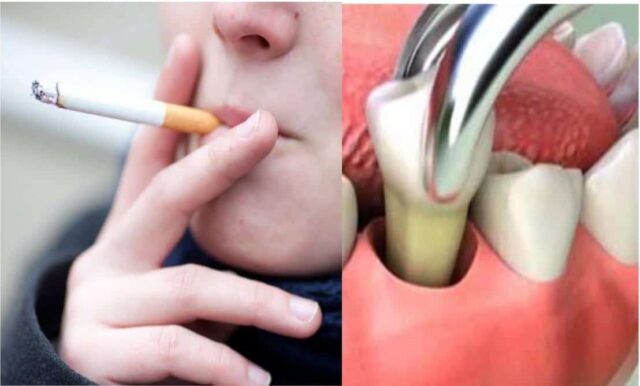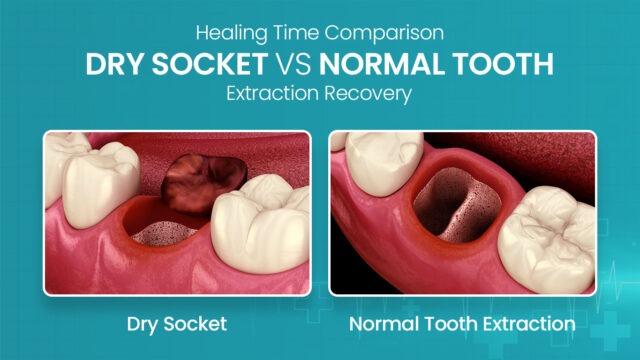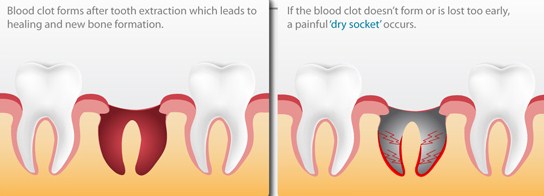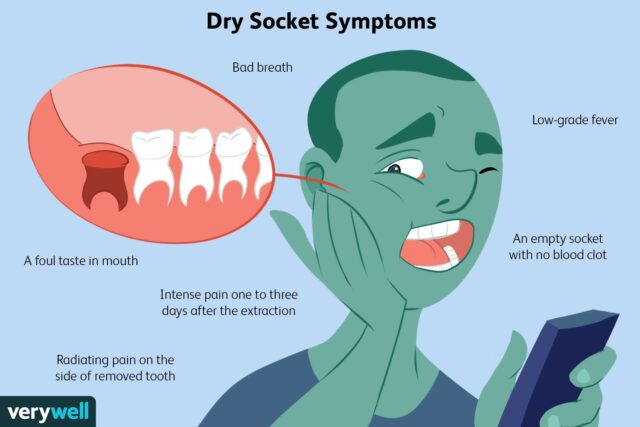Smoking After Tooth Extraction
Taking care of your mouth after a tooth extraction is very important to ensure proper healing and avoid complications. Smoking, in particular, can significantly impact the healing process. Getting a tooth extracted can be a frightening experience, and we know you have questions—especially if you’re a smoker. After all, you want to make sure you heal properly and avoid complications like dry socket. In this blog, we’ll walk you through everything you need to know about smoking after a tooth extraction, including the myths, the facts, and the best practices to ensure a smooth recovery. So, let’s dive in and get you back on the path to a healthy smile!
Why You Should Avoid Smoking After Tooth Extraction
The healing process after a tooth extraction is delicate and it requires proper care to avoid complications. Smoking after tooth extraction can disturb this healing process in several ways:
- Delayed Healing: Firstly, Smoking can significantly delay the healing process after a tooth extraction. Nicotine reduces blood flow to your gums and surrounding tissues, damaging or stopping your body’s ability to deliver essential nutrients and oxygen that are needed for healing. This means that your mouth will take much longer to recover from the extraction.
- Risk of Dry Socket: Also, one of the most common and painful complications after a tooth extraction is a condition called Dry Socket (alveolar osteitis). Normally, a blood clot forms at the place where the tooth was extracted, which is very important for your mouth and gums to heal properly. Smoking can remove this blood clot, leading to a dry socket. Without this protective clot, the underlying bone and nerves are exposed, causing severe pain and increasing the risk of infection.
- Increased Infection Risk: Smoking introduces harmful bacteria and other contaminants into your mouth, and this increases the risk of having an infection at the extraction site. An infection can lead to additional complications, prolong the healing process, and may require further medical intervention.
- Inflammation and Irritation: Furthermore, the chemicals in cigarette smoke can cause inflammation (swelling) and irritation of your oral tissues. This not only increases pain and discomfort but can also contribute to the development of more serious conditions.
- Overall Oral Health: Smoking is detrimental to your overall oral health. It contributes to gum disease, tooth decay, and even oral cancer, all of which can complicate recovery after any dental procedure.
How Smoking After Tooth Extraction Affects Healing
Smoking introduces several adverse effects that can hinder healing post-extraction:
- Reduced Blood Flow: Nicotine causes blood vessels to constrict. Also, nicotine in cigarettes reduces blood flow to your gums and the extraction site. This limits the delivery of essential nutrients and oxygen needed for healing, slowing down your recovery.
- Introduction of Toxins: The chemicals in cigarettes can irritate the gums and slow down the regeneration of tissue.
- Inflammation and Irritation: Smoking can cause inflammation, making the extraction site more susceptible to infection and other complications.
Understanding Dry Socket
Dry socket, or alveolar osteitis, is a common complication after tooth extraction, particularly for smokers:
What is Dry Socket For Smoking After Tooth Extraction and How To Avoid It
Dry socket is a real pain (literally) and can totally ruin your recovery after a tooth extraction. It happens when the blood clot at the extraction site gets dislodged or dissolves too early. Here’s how you can avoid this nasty complication: Now we will see some different ways of avoiding dry socket.
- Follow Your Dentist’s Instructions: Your dentist or oral surgeon knows best, so make sure you follow their post-op instructions closely. They’re designed to help you heal quickly and avoid problems like dry socket.
- Say No to Smoking: If you smoke, take a break for at least 48 to 72 hours after your tooth extraction. The sucking motion of smoking and chemicals in cigarettes can mess up the blood clot and slow down healing after tooth extraction.
- Skip the Straws: Avoid using straws for a few days. The suction can dislodge the blood clot, and trust us, you don’t want that.
- Eat Soft Foods: Stick to soft foods that don’t require much chewing. Think yogurt, applesauce, mashed potatoes, and smoothies (just drink them without a straw).
- Keep Your Mouth Clean (Gently): Good oral hygiene is important, but be gentle. Don’t rinse vigorously, spit forcefully, or brush directly at the extraction site for the first 24 hours. After that, rinse your mouth gently with warm salt water to keep things clean.
- Hands Off: Resist the urge to poke or prod the extraction site with your tongue, fingers, or anything else. Messing with the area can disrupt the blood clot and slow down your healing.
- Take Your Meds: If your dentist gave you medication, take it as directed. It’ll help manage pain and reduce the risk of infection.
Follow these tips to steer clear of dry socket and make your recovery as smooth and comfortable as possible.
How Smoking After Tooth Extraction Contributes to Dry Socket
The act of inhaling smoke can dislodge the blood clot, and the toxins can prevent proper clot formation.
Symptoms to Watch For
Severe pain, bad breath, and visible bone in the extraction site are common symptoms. If you experience any of these smoking after tooth extraction, contact your dentist immediately! You can as well contact Parla Clinics for a swift and free consultation. Their consultants are always willingly ready to help.
Preventing Complications for Smoking After Tooth Extraction
Preventive measures are very important if you want to avoid complications for smoking after Tooth Extraction.
- Importance of Following Dentist’s Advice: Strictly adhere to post-extraction care instructions provided by your dentist.
- Alternatives to Smoking: Consider nicotine patches, gum, or other cessation tools to avoid smoking during the healing period.
Timeline for Healing After Tooth Extraction
The healing process varies from person to person, but general guidelines can help set expectations:
- Initial Healing Period: Typically, the first 24-48 hours are critical for blood clot formation.
- Full Recovery Expectations: Complete healing can take several weeks, during which it’s essential to avoid smoking and follow care instructions.
When Can You Smoke After Tooth Extraction?
Consult with your dentist for personalized advice, but general guidelines include:
- General Guidelines: It’s usually recommended to avoid smoking for at least 72 hours post-extraction.
- Dentist’s Recommendations: Follow your dentist’s specific instructions, as they know your case best.
Alternatives to Smoking after Tooth Extraction
If you need to avoid smoking, consider these alternatives:
- Nicotine Replacement Therapies: Options like patches, lozenges, or gum can help manage cravings without the harmful effects of smoking.
- Quitting Support Resources: Utilize resources like support groups or smoking cessation programs to aid in quitting.
Managing Nicotine Cravings T0 Not Smoke After Tooth Extraction
Handling nicotine cravings effectively can prevent you from smoking during the crucial healing period:
- Techniques for Coping: Deep breathing exercises, physical activity, and engaging hobbies can help manage cravings. To put this is in “Genz” terms, you should “Touch Grass More” 🙂
- Healthy Distractions: Chewing sugar-free gum, drinking water, or focusing on tasks can divert attention from cravings.
Signs of Infection After Tooth Extraction
Recognizing infection signs early after tooth extraction can prevent severe complications:
- Common Symptoms: Increased pain, swelling, redness, or discharge from the extraction site.
- When to Seek Medical Help: If you notice any of these symptoms, contact your dentist immediately for appropriate care.
Best Practices for Oral Hygiene After Tooth Extraction
Maintaining oral hygiene is vital for a smooth recovery after tooth extraction:
- Cleaning the Extraction Site: Gently rinse with salt water and avoid vigorous brushing around the extraction site.
- Oral Care Products to Use: Use a soft-bristled toothbrush and non-alcoholic mouthwash as recommended by your dentist.
Diet and Nutrition for Faster Healing
Your diet plays a significant role in the healing process after getting your tooth extracted:
- Foods to Avoid: Hard, chewy, or spicy foods that can irritate the extraction site.
- Recommended Nutrient-Rich Foods: Soft foods rich in vitamins and minerals, such as yogurt, mashed potatoes, and smoothies, support healing.
Hydration and Healing
Staying hydrated helps big time for recovery:
- Importance of Staying Hydrated: Adequate hydration helps maintain moisture in your mouth, promoting healing.
- Best Fluids to Drink: Water, herbal teas, and clear broths are excellent choices.
Pain Management
Managing pain effectively can improve comfort during recovery:
- Over-the-Counter Pain Relief: Medications like ibuprofen can help reduce pain and inflammation.
- Natural Remedies: Ice packs and gentle rinsing with salt water can provide relief.
Remember that smoking after tooth extraction greatly increases the risk of you having more pain.
Follow-Up Visits
Regular follow-up visits with your dentist ensure a smooth recovery:
- Importance of Regular Check-Ups: These visits help monitor healing progress and address any issues promptly.
- What to Expect During Follow-Up Appointments: Your dentist will check the extraction site and may provide additional care instructions.
Understanding Your Body’s Response
Recognizing normal versus abnormal healing signs can guide your recovery:
- Normal vs. Abnormal Healing Signs: Some discomfort is normal, but severe pain or persistent swelling requires attention.
- Personalized Recovery Timelines: Everyone heals differently, so follow your dentist’s advice for your specific situation.
FAQs
Can I smoke immediately after tooth extraction? No, smoking immediately after tooth extraction can dislodge the blood clot and lead to dry socket and other complications.
How long should I wait to smoke after an extraction? It’s generally recommended to avoid smoking for at least 72 hours, but follow your dentist’s specific advice.
What happens if I smoke too soon after extraction? Smoking too soon can cause dry socket, infection, and delayed healing, leading to increased pain and discomfort.
Are there any safe alternatives to smoking after tooth extraction? Yes, nicotine replacement therapies like patches, gum, or lozenges can help manage cravings without the risks associated with smoking.
What are the symptoms of dry socket? Symptoms include severe pain, bad breath, and visible bone in the socket. If you experience these, contact your dentist immediately.
How can I manage pain after tooth extraction? Over-the-counter pain relievers, ice packs, and gentle saltwater rinses can help manage pain effectively.
Conclusion
In summary, avoiding smoking after a tooth extraction is crucial for ensuring a smooth and complication-free recovery. By following your dentist’s advice, using alternatives to manage cravings, and maintaining good oral hygiene, you can significantly improve your healing process. Prioritize your health by making informed choices and allowing your body the best chance to heal properly.






